LINCOLN CENTER JAZZ ORCHESTRA with WYNTON MARSALIS / “Acknowledgement”
The four note bass line of John Coltrane’s “A Love Supreme” is undoubtedly the most well known and influential bass line in 20th century music.
The bass line is part of the opening of Coltrane’s four part masterwork A Love Supreme. Here are five versions of the opening section, which introduces the bass line and famous phrase: “A Love Supreme.” There are a number of other versions—most notably the Branford Marsalis Quartet, which by the way produced a DVD of the concert when they played A Love Supreme. I like Branford's version but it does not add anything to the diversity of examples included here and certainly there was no way for it to match Trane’s quartet, so I don’t include it. We’ll stick with these five versions, each of which demonstrate a little something different.
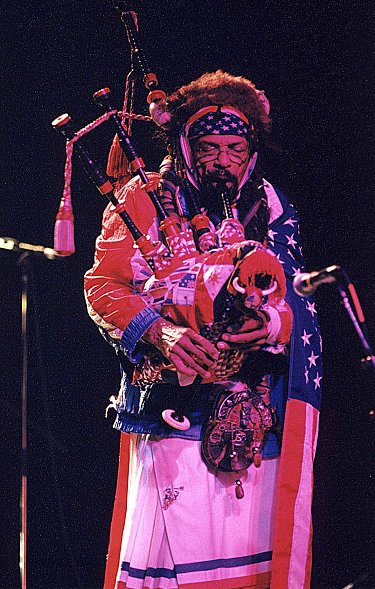
Rufus Harley was a jazz musician who played the bag pipes. Many people don’t know that shortly before he died John Coltrane started getting into playing bag pipes. That’s not surprising when you consider that Trane was the chief proponent of using drones, vamps and other modal devices. Harley’s version gives us a hint at what Coltrane might have sounded like on the Scottish instrument. This is taken for the compilation CD Free Spirits on the Kindred Spirits label.
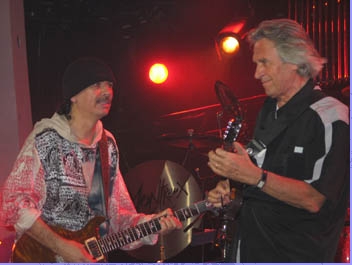
The jazz/fusion/rock world weighs in with this Bill Laswell re-mastered/remixed version featuring Carlos Santana and John McLaughlin. Guitarists of the world I know will be delighted with this version and the horn players, well, let’s just say after a few minutes they might as well hit the skip button because from the giddy-up either you like or loathe it. Available on Divine Light: Reconstruction & Mix Translation: Bill Laswell.
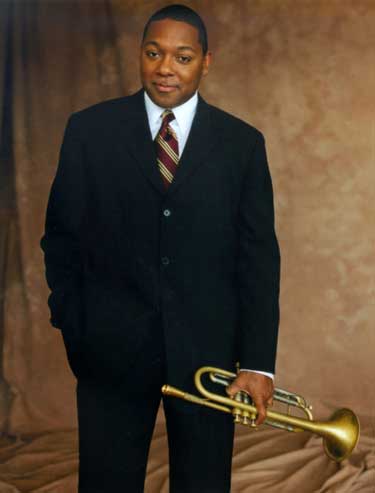
Wynton Marsalis and the Lincoln Center Jazz Orchestra are up next with a big band arrangement. If you can, imagine the Ellington Orchestra playing A Love Supreme with an arrangement co-authored by Billy Strayhorn. They play with a meticulousness that is either masterful or maniacal (depending on how you feel about technical excellence as the focal point of jazz). It’s truly refreshing to hear a big band arrangement. I appreciate a whole bunch what they achieve, I just don’t particularly like listening to it that much. Available on A Love Supreme with Wynton Marsalis.
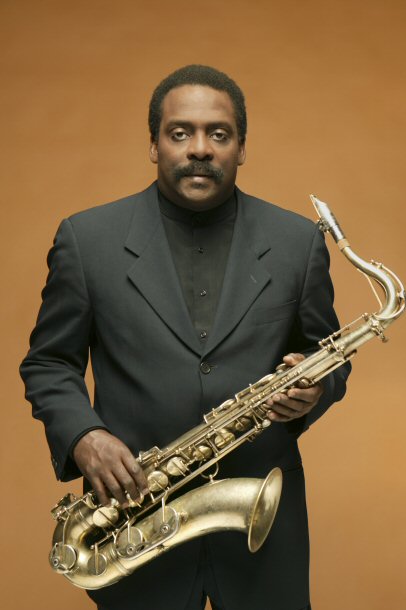
David Murray’s octet is the flip side of the LCJO. Precision and musical correctness are the last things on these cats minds. They play like they are a fire burning on the roof of the sheriff’s house—and you know what we say about roofs on fire ;->). The audience obviously dug it hugely. So did I even as I wish it had been a bit more tightly arranged. For example: think of how strong this concert would have been had the solos been in reverse of the order presented. My man Lafayette Gilchrist on piano starts off where everybody should be ending and what’s the sense of the trumpeter following David’s sax solo? But, hey, it was a live concert and that’s what happened. Take it or leave it.
David Murray’s band consisted of: David Murray – tenor;
James Spaulding – alto; Craig Harris – trombone;
Rasul Sadik and Hugh Ragin – trumpet;
Lafayette Gilchrist – piano;
Jaribu Shahid – bass; and
Mark Johnson – drums. They were recorded live at the Chicago Jazz Festival, Grant Park, Chicago, IL, September 1, 2000. This concert is not commercially available.
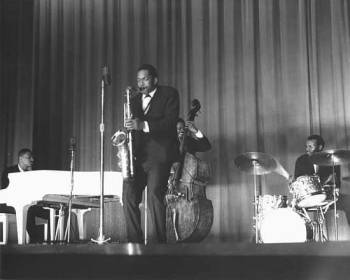
We close with John Coltrane’s only known live recording of A Love Supreme. This was in Antibes, France shortly after the 1964 album was released. Two things strike me as significant. 1. Coltrane’s sound. Always. Trane. The cosmic sound. Way beyond a matter of technique. His whole being was a vibration that deserved veneration, but his other worldly sound, well, it taught us that we could aspire to be gods. Yes it did. That strong. That awesome.
2. In the midst of whatever was happening, however furiously, Coltrane was a lyrical singer. You can clearly hear the melodic arc of the composition. To be clear this is due not simply to Trane but rather is a result of the whole band working as one. Indeed, I suggest you listen to this track four times, back to back. Each time you listen, focus on a different member of the quartet Trane – tenor, McCoy Tyner – piano, Jimmy Garrison – bass, and Elvin Jones - drums. I am especially impressed that the bass is way up front in the mix because you get a chance to really appreciate Jimmy Garrison’s strength and advanced harmonic ideas, all of which are generally lost in the mix on other recordings.
I wasn’t going to do it but I might as well just go ahead and drop the whole thing on you. It’s available on the wonderful A Love Supeme – Deluxe. Word to the wise, even if you have a European recording of the live version (and I know you already have the studio version, right?!), nevertheless it’s worth getting the Deluxe version because of alternate tracks, including the fabled missing track with Archie Shepp.
Enjoy Trane’s live version of A Love Supreme. You are listening to a musical miracle.
—Kalamu ya Salaam
It's a reinterpretation
When Kalamu sent me these versions, I burned them to a CD and listening to them in my car without really knowing which was which. (Although I could obviously pick out certain ones - bagpipes are hard to miss.) It was interesting to hear all the disparate versions back-to-back, but the only one that really stuck out for me was the Lincoln Center Jazz Orchestra version.
There's nothing particularly wrong with the other versions (well, except for that Bill Laswell thing; there's definitely something wrong with that one and I think Kalamu knows it), it's just that there's no reason for me to listen to them instead of Trane. The LCJO version stands out because it's a complete rearrangement. It's not a remake, it's a reinterpretation. Wynton obviously put in work on the new arrangement, especially those wild horn charts. I know what Kalamu's saying about not particularly enjoying it. There is a certain muted chamber-music quality to it, but I like it anyway. It doesn't have the intensity or spiritual depth of either Trane version, but I think they achieved what they were going for. It's a quality record.
* * *
Oh, I almost forgot. About that first sentence: "The four note bass line of John Coltrane’s 'A Love Supreme' is undoubtedly the most well known and influential bass line in 20th century music." I think Kalamu's Trane-love is clouding his judgement. One thing you have to remember is this: straight-ahead jazz, even at its most popular, isn't particularly popular with the general public and never was. (I'm talking John Coltrane, not Benny Goodman.) I know lots of people who have never heard of John Coltrane at all and certainly wouldn't recognize that bassline.
Think about it: the biggest-selling jazz records of all time probably wouldn't make it onto a Top 100 list of best-selling pop or R&B or rock or rap albums. That's not a knock on jazz at all. It's relative lack of popular appeal is actually one of the things that has helped it remain a viable art-form for so long. I only wish hip-hop had never turned into the commercial juggernaut it's become - artistically speaking, it's much more of a curse than a blessing.
Here's a totally random example as far as well known basslines. Try the one from Chic's "Good Times." Not only was the Chic record a big hit, the same bassline ended up on two other huge hit records, The Sugarhill Gang's "Rapper's Delight" and Queen's "Another One Bites The Dust." It's a virtual guarantee that more people (several times over) would recognize the "Good Times" bassline from hearing either the Chic, Sugarhill Gang or Queen record than would recognize the bassline from "A Love Supreme."
As for the influence part, that's possible, I suppose. Influence is almost totally subjective, so it's hard to say. How would we establish something like that anyway? By polling a representative number of musicians across all the genres and styles of the entirety of 20th century music? It's just not possible to make a statement like that based on anything but speculation.
—Mtume ya Salaam
Among musicans/artists
It takes a stone to sharpen the blade. Mtume, I'm some glad you are my writing partner.
First things first. I had planned to feature the David Murray but your response convinces me that it would be better to feature the Wynton Marsalis cut. As we both noted, it is a distinct arrangement and not simply a blowing exercise.
Second, my statement about the bass line. I would have been a lot clearer if I had said among musicians and artists in the world. You are right if we are talking about popular American culture but when we expand the breath to include world musical culture and specify that we are talking about musicians and artists, well then we are in an entirely different universe.
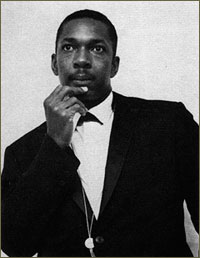
A Love Supreme is important and influential on so many levels but let me just cite two or three quick examples.
I'm sure there's a club called "Good Times" somewhere on Planet Earth but I feel comfortable categorically stating that there is no church named for Chic's song. There is a church in San Francisco dedicated to John Coltrane.
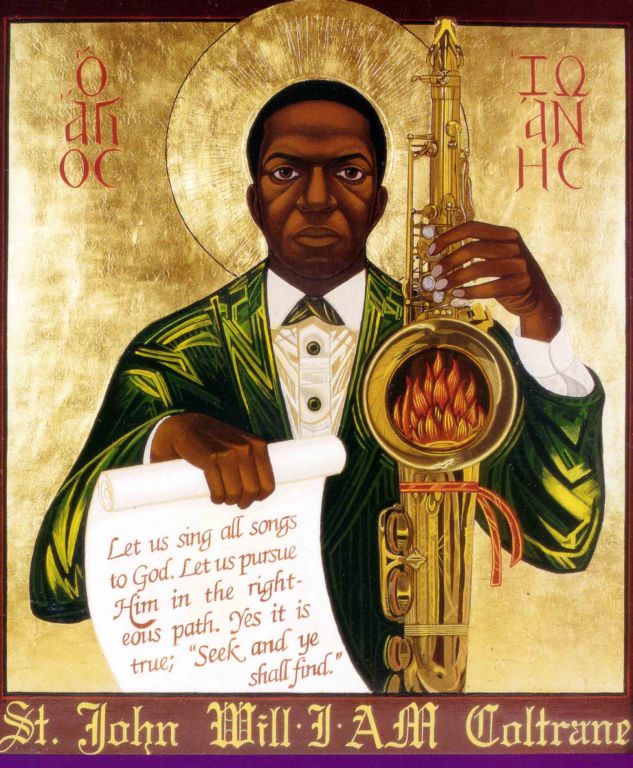
A Love Supreme, to an extent unmatched by any other work of art of its era, promoted spiritual development and religious devotion. In this way the composition reached people who otherwise would not be touched by jazz, popular music, or commercial art.
Coltrane had a major influence on artists other than musicians. Choreographers Anne Teresa De Keersmaeker & Salva Sanchis produced "A Love Supreme," a major dance performance that toured Europe in 2005/2006. that's just one quick example.
This is not to mention the books written about Coltrane including Ashley Khan's exhaustively researched book A Love Supreme. Mtume, as you well know from your years working in the music industry, Trane's A Love Supreme continues to sell, year after year, genertion after generation.
I agree, Chic's bass line was more well known in its time among the general population and yes, Chic's bass line has been sampled in Hip Hop, but Chic's influence wans with time. Coltrane remains timelessly influential. Twenty years from now young musicians will study Trane.
That's what I meant. Thanks, Mtume, for pulling my coat and encouraging me to be clear. The tendency to talk in vague generalities and comfortable short hand should be resisted if we want to be clear.
—Kalamu ya Salaam
This entry was posted on Sunday, May 27th, 2007 at 12:11 am and is filed under Cover. You can follow any responses to this entry through the RSS 2.0 feed. You can leave a response, or trackback from your own site.
5 Responses to “LINCOLN CENTER JAZZ ORCHESTRA with WYNTON MARSALIS / “Acknowledgement””
May 27th, 2007 at 4:40 am
Much as I love the original track and the performer, I think I am still with Mtume on the bassline thing, ultimately its a jazz thing, however, transcendent. I still love hearing someone state their case for a ‘best of all time’ though. Same goes for the spiritual impact – Marley’s Redemption Song always rang true for me, while I wonder how many pacifists were borne from gazing at Picasso’s Guernica, Given so much art, ultimately its all subjective. Having said that, maybe I need to give the bagpipe track another listen…
May 27th, 2007 at 6:42 am
wynton is a wonderfull music
at the upcoming north sea jazzfestival he is the ARTIST IN RESIDENCE
HE IS GOIN TO PERFORM AT ALL THE THREE DAYS OF THE NORTH SEA JAZZ FESTIVAL IN HOLLAND
May 27th, 2007 at 6:45 am
i forgot to mention /write the link of the north sea jazz festival
May 27th, 2007 at 11:27 am
as a bass player, i wish to say that I understood completely what you were saying when you wrote about the bass line being famous.
what you’re really talking about isn’t necessarily the bass line, because although the bass does play that figure, it’s really the transposed riff that makes it so memorable when trane plays it through the keys.
i think maybe we’re from a different generation. i probably was first touched by this bassline by hearing Sting endlessly paraphrase it. Nearly every bass line he plays has “it” in it.
!
But yeah, I like Branford Marsalis’ version. Sonically, you might say that it doesn’t give one a compelling reason not to listen to JC’s instead. However, I like it because it is sonically similar.
Alice Coltrane’s version is excellent. It was on the RED HOT AND COOL CD which is excellent. Have you heard that? there are several songs based on Oliver Nelson’s “Stolen Moments” and “A Love Supreme”.
as far as whether this bass line is recognizable, let’s just say that if I was playing with a rock group, pretty much no one recognize it. The few that did recognize it would be hypnotized with a big grin on their faces.
if I was playing it with a jazz group, still, there’s not a lot of sophistication in most Jazz audiences.. a lot of people just go to jazz shows to dance or because they like the overall sound, but can’t even recognize form or melody in jazz tunes.
Of course, if you had the right player (such as the spirit of the angel known as John Coltrane appearing on stage beside me), damn right if I wouldn’t play this bass line and everyone would know that we were about to explore this piece.
Much love!
and the Wynton is good.
For those of you who are reading this who never add comments, there is a 4 letter code you have to read and type in to prevent spammers. and it’s always something musical or good.
in this case, the word I get to type in is LOVE.
How appropriate. PEace.
May 29th, 2007 at 2:47 pm
Love Supreme is probably my favorite if not my favorite jazz song. Funny thing is that my appreciation for jazz came from an unlikely source. I was a huge Spike Lee fan back in the early days and as you know he uses jazz whenever possible on his soundtracks. So I think a whole other generation that was previously exposed to mostly R&B, gospel, disco and hip hop were reintroduced to jazz. It is a fascinating musical form. I have a boyfriend who had no love for jazz eventually learn to understand it. He’s not a jazz listener but he can appreciate the art form.
Leave a Reply
| top |